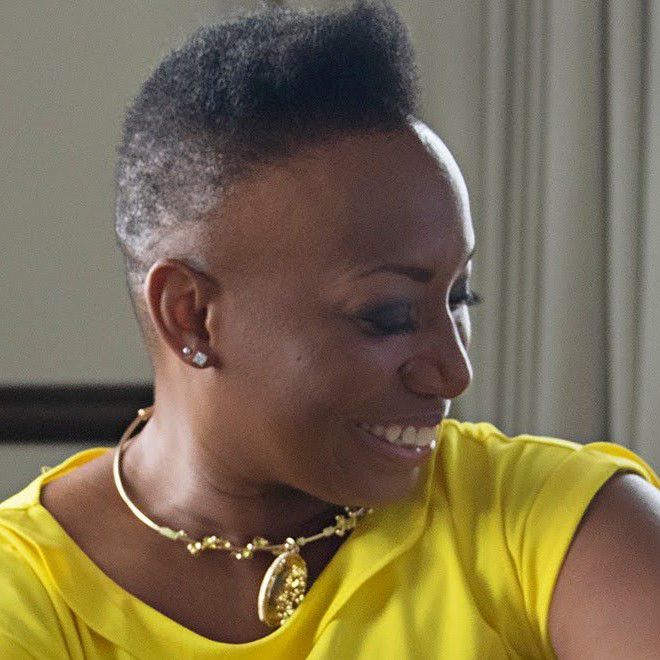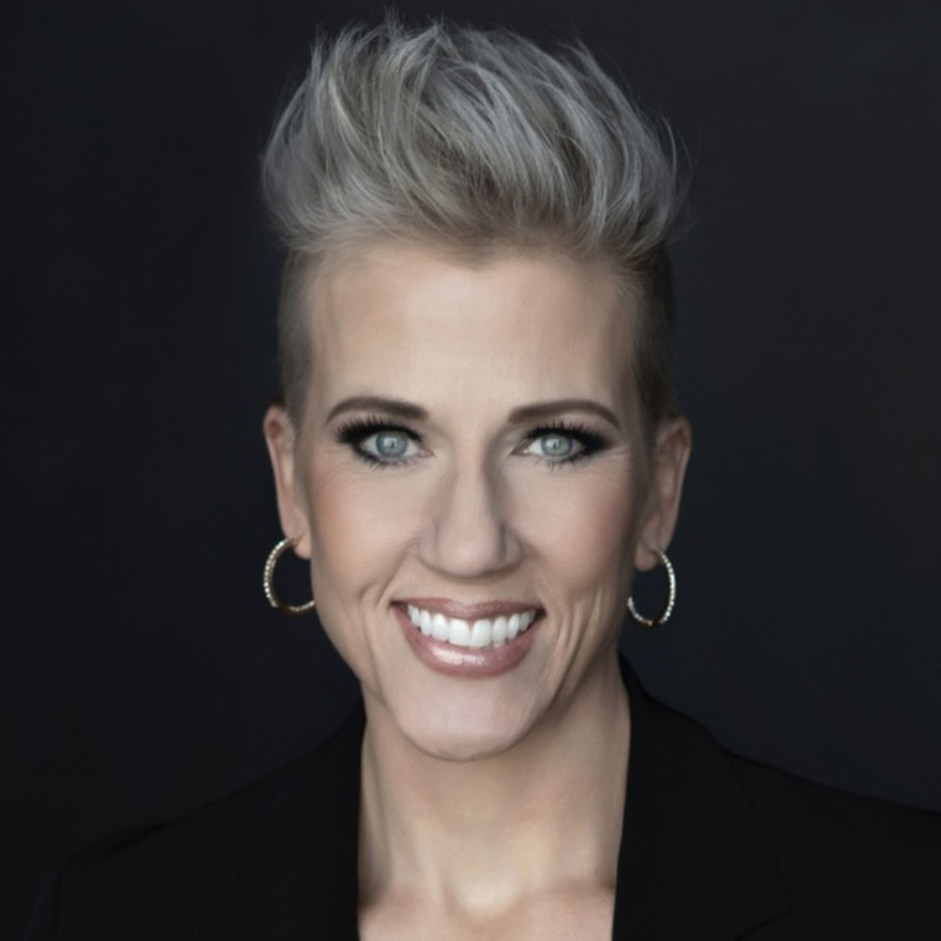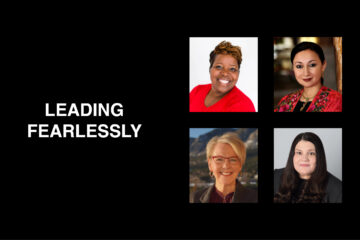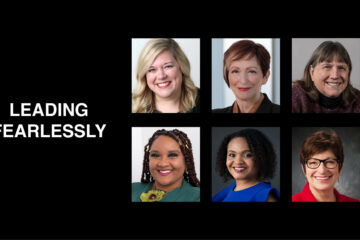By Suzanna de Baca, President and CEO, Business Publications Corp.

When I was starting out my post-MBA career in the male-dominated world of investment management, there were few women in the business. I got a lot of comments about my appearance. One of my colleagues regularly and publicly remarked on my outfit, pointing out when he thought I looked “especially pretty.” Even though his scrutiny made me uncomfortable and self-conscious, I brushed him off with humor. When my male boss overheard him, he chastised the colleague for being inappropriate. But the colleague’s reaction was not to apologize. Instead, he got defensive, explaining, “I meant it as a compliment.” For a long time, I didn’t even know these types of behaviors and comments had a name: microaggressions.
What is a microaggression? According to American Psychology research, a microaggression is: “Brief and commonplace daily verbal, behavioral, and environmental indignities, whether intentional or unintentional, that communicate hostile, derogatory, or negative racial, gender, sexual-orientation, and religious slights and insults to the target person or group.” Microaggressions are so ubiquitous that women often don’t notice them or recognize them for what they are.
Common microaggressions: If you’ve ever had a job, chances are you’ve heard and experienced mansplaining, mom shaming, victim blaming, qualification questioning, behavior policing, stereotyping, “friendly” touching, sexual language or harrassment, objectification, and last but not least: the wage gap. While some microaggressions can be subtle, the harm is lasting; they can contribute to depression, anxiety and issues with relationships on a personal level. They can also have long-term effects on organizations, with academic research showing that they negatively affect job satisfaction, engagement and performance.
Microaggressions damage organizations. A study cited in a recent Harvard Business Review article revealed microaggressions can lead to less effective team interactions and inhibit the advancement of women in leadership. The author says, “When male-dominated cultures normalize women deferring to men, teams not only miss out on women’s contributions, but they end up overlooking women for promotions.” Not surprisingly, the HBR article and a recent McKinsey study point out that microaggressions are more commonly experienced by women of color, women with disabilities and LGBTQ+ women than men and women overall in professional settings.
I asked some women leaders to share their experiences with microaggressions and thoughts on why microaggressions are so damaging in the workplace:

Dwana Bradley, general chairperson, Iowa Juneteenth Observance: When Bradley was starting out as general chairperson of Iowa Juneteenth, she went to visit the president of an organization to discuss their work and to explore sponsorship interest. As she normally did, she brought along her father, the founder of Urban Experience magazine. From the moment they entered the room, the president looked at and talked only to her father. It was as if Bradley were invisible. Eventually, her father stopped the man, saying, “You keep looking at me, but she is the one with all of the answers. She is the boss.” Bradley brushed it off with a laugh, but was mortified and upset. She left questioning whether her dress and language made this individual discount her, rather than focusing on the business at hand.

Nola Cartmill, chief diversity officer and legal counsel, Holmes Murphy: Cartmill, a Harvard-trained lawyer, says she will never forget one particular courtroom experience. She remembers walking into court for a pretrial hearing “suited and booted, as they say.” She sat down at the counsel table and was asked by the court reporter if she was a lawyer. Cartmill says, “I wish I had responded, ‘Well, I’m wearing a suit and sitting at counsel table like every other lawyer in the courtroom, aren’t I?’” But instead, she sheepishly said yes and felt her self-confidence deflate. She remembers, “What seemed like a small slight to others took my balloon of confidence and popped it right before I needed to be at my best.”

Courageous Fire, owner/social entrepreneur, Courageous Fire LLC: Fire recalls an experience that occurred when their company had new hires shadowing in the center where she worked. As one of the longest-tenured employees, she had helped craft the new hire curriculum and was considered a leader. That day, in keeping with her typical style, she was wearing a fluffy white faux fur. Her supervisor introduced her as the unofficial leader of the center and then blurted out, “Don’t you just want to PET her?” Fire stood in shock, feeling insulted and undermined. Had her boss, who was also a woman of color, really just likened her to a dog, she wondered, and in front of new white employees and colleagues she had trained? Everyone laughed, oblivious to her distress. When she later worked up the courage to confront her colleagues, their reaction was that they “had not meant it that way.” That incident was life-changing for Fire. She says, “Although the mental toll for me was immeasurable, I somehow grew strong enough to take up a new mantle – working to change the narrative on the ways Black women are treated in crisis situations right here in Iowa.”

Melinda “Missy” Gowey, executive director, Genesis Philanthropy, Genesis Foundation: At one point in her career, Gowey hired a male colleague more than a decade her senior for a niche role on her team. He was a well-known, seasoned professional with a stellar reputation, so she was thrilled to bring him on board. What she did not foresee, however, was that he would be mistaken for her boss both externally and internally. She often noticed her all-female team’s deference to his opinions. They were both uncomfortable, says Gowey, “Not because of the reporting relationship, but because the archaic assumption that a senior male is the leader when a younger female is present diminished me and called into question his decision to accept a ‘lesser’ role.” Gowey recalls that while her response to uncomfortable situations at the time was to defuse with humor, she now recognizes that not speaking up prevented her from being a change agent. “When did it become natural for individuals of a singular gender, race or ethnicity to be the perceived leader?” she asks. “As I mature, I see more clearly the influence and opportunity I have been given to help those who may be overlooked or undervalued.”

Bev Hutney, board director: As one of six women in an executive MBA class of 42, Hutney vividly remembers squirming as an economics professor explained the theory of supply and demand using bikini sales in Europe. The professor joked that the demand for bikini tops in France was far lower than in the United States. Hutney recalls seething inside because the topic was business economics, yet the thought of topless women made the room giggle sheepishly. The example unnecessarily undermined women and made it awkward for the female students in the class. “Sadly, I did nothing,” she reflects, partly because the professor was teaching his last class before retirement, and she didn’t want a fuss. “I valued his feelings over mine,” she says. “Sound familiar?”

Beth Shelton, CEO, Girl Scouts of Iowa. Shelton has often experienced microaggressions related to the expectations of motherhood and the balance of being an executive. With even short business trips, she says it is regular to get questions like “Who is taking care of your children?” or comments like “That must be nice, but I could never be away from my kids.” She observes there’s a consistent undertone that engaged and caring motherhood is mutually exclusive to a robust career. Shelton says, “In my experience, women are often the recipients of these microaggressions, increasing the unspoken pressure for women to pass up or be passed up for career opportunities, exacerbating the leadership and wage gap.”
Why are microaggressions so damaging for women in the workplace?
Bradley: When microaggressions happen, it can silence you right in your tracks. It catches you off guard and at times you do nothing because you don’t want to make things worse, but you know you should address the issue. I was grateful my father spoke up and set things straight in the situation where I was being ignored, but many times when someone is on the receiving end of microaggressions they have no one to speak for them.
Cartmill: Microaggressions are damaging for women in the workplace because, although they are treated as small transgressions even by their sheer title, they build up to large effects on women’s physical and mental well-being. These effects tend to reinforce stereotypes in a way that amplifies the already existing disparities in pay and difficulties in breaking the glass ceiling.
Fire: Damaging defined is causing harm. Harm defined is physical injury, especially that which is deliberately inflicted. You see, microaggressions are deliberate, indicating a lack of value. Within that denouncement of worthlessness lives what could become our largest, most powerful and, for some, unbeatable adversary.
Hutney: I started working in the ’80s when women mimicked men to fit in (e.g., big shoulder pads, stoic attitudes). It took me years to feel worthy in my authentic skin, and I still cringe a little when people distinguish me by gender. Even subtle or innocent comments can boomerang me back to those early feelings of vulnerability.
Gowey: There are material consequences when even well-intentioned people make slights toward women in the workplace. Microaggressions erode a woman’s confidence, inspire insecurities and lead her to believe her success is undeserved. It’s difficult to make decisions and operate from a position of strength under those circumstances. Organizations suffer because talented, capable women leave for more supportive work environments.
Shelton: The cumulative impact of gender-based microaggressions experienced over months and even years creates a noticeable disparity in the outcomes for girls and women.
Editor’s note: This article has been updated to correct an error.


